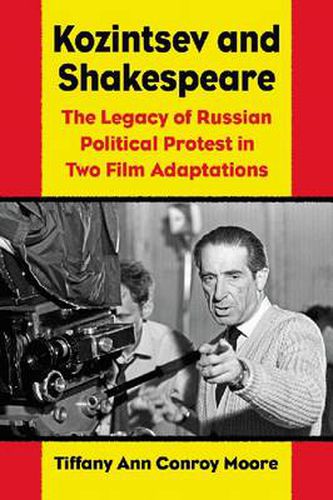Readings Newsletter
Become a Readings Member to make your shopping experience even easier.
Sign in or sign up for free!
You’re not far away from qualifying for FREE standard shipping within Australia
You’ve qualified for FREE standard shipping within Australia
The cart is loading…






This book is a study of Grigory Kozintsev’s two cinematic Shakespeare adaptations, Hamlet (Gamlet 1964), and King Lear (Korol Lir 1970). The films are considered in relation to the historical, artistic and cultural contexts in which they appear, as well as the contributions of Dmitri Shostakovich, who wrote the films’ scores, and Boris Pasternak, whose translations were used in both films. The films are also analyzed respective to their place in the translation and performance history of Hamlet and King Lear from their first appearances in Tsarist Russian arts and letters; in particular, the ways in which these plays have been used as a means to critique the government and the country’s problems in an age in which official censorship was commonplace. Kozintsev’s films (as well as his theatrical productions of Hamlet and Lear, which are also analyzed in this study) continue along this trajectory by also providing a means for him and his collaborators to address the oppression, violence and corruption of Soviet society. It was just this sort of covert political protest that finally effected the dissolution and fall of the USSR.
$9.00 standard shipping within Australia
FREE standard shipping within Australia for orders over $100.00
Express & International shipping calculated at checkout
This book is a study of Grigory Kozintsev’s two cinematic Shakespeare adaptations, Hamlet (Gamlet 1964), and King Lear (Korol Lir 1970). The films are considered in relation to the historical, artistic and cultural contexts in which they appear, as well as the contributions of Dmitri Shostakovich, who wrote the films’ scores, and Boris Pasternak, whose translations were used in both films. The films are also analyzed respective to their place in the translation and performance history of Hamlet and King Lear from their first appearances in Tsarist Russian arts and letters; in particular, the ways in which these plays have been used as a means to critique the government and the country’s problems in an age in which official censorship was commonplace. Kozintsev’s films (as well as his theatrical productions of Hamlet and Lear, which are also analyzed in this study) continue along this trajectory by also providing a means for him and his collaborators to address the oppression, violence and corruption of Soviet society. It was just this sort of covert political protest that finally effected the dissolution and fall of the USSR.